Kenya
A citizens score card on the SDGs and the state of marginalisation Kenya: Governance is the key to sustainability
“Devolution” is a key governance issue in Kenya to overcome “rampant corruption and impunity”, identified by civil society as the major obstacle to the realization of the SDGs. The “handshake”, a political alliance between the President Uhuru Kenyatta and the main opposition leader and former Prime Minister Raila Ondinga, has cooled the political temperatures that led to violence after the 2017 election. Nevertheless, the decentralization promised in the Constitution of 2010 has been affected by “ absence of consultation on matters that affect County Governments, little technical support for the implementation of functions, insufficient allocations and delayed disbursements of funds to Counties by the National Treasury, lack of capacity and skills to deliver services, corruption, lack of public participation, and gender inequality”.
The shadow report on SDG implementation, submitted by SODNET & Ujeengo Global Community Consortium (Consortium on International Development Projects in Kenya -CIDPK) explains that “with devolution, each county has an equitable share of government resources, governed by a set of criteria that include: economic disparities within and among counties and the need to remedy them; the desirability of stable and predictable allocations of revenue; and the need for economic optimization of each county and to provide incentives to optimize its capacity to raise revenue.
Among the problems identified, the report studies the fate of youth, economic and gender inequalities, food insecurity and unpaid care and domestic work.
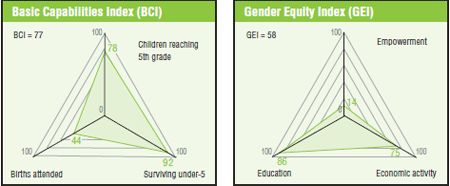
Published on Wed, 2018-11-07 17:44
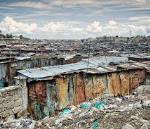
|
In Kenya the NGO SODNET reports that “the widening gap between the rich and the poor continues to undermine confidence in the institutions of democratic economic governance and, alongside it, the imperative of social cohesion as a condition for sustainable development”. According to Edward Oyugi, J. Ocholla and Mwaura Kaara “Kenya still lives uneasily with a colonial past and its legacy of unequal development, arising from acute asymmetry of power relations associated with the continuation of a colonial system that had merely engaged a strategic retreat gear against the false belief that the post-colonial dispensation marked a systemic transformation of the colonial societies.” The report concludes that democracy and sustainable development remain “a dream” because “the culture and practice of corruption has grown deep and enduring roots in Kenyan society and become endemic” and allows for concentration of wealth within the ruling circles. The political and bureaucratic leadership benefit from it “and the existing governance institutions either kick the can down the road or lack both the will and capacity to stop them from doing so”.
|
Published on Fri, 2017-09-15 14:45
The Kenya Social Watch report registers “heavy and unprecedented investment in mega-infrastructure projects.” Instead of spurring equitable economic growth these initiatives are placing on the national economy an unbearable debt burden of some US$ 50 billion.
The report states that “the growth-leading sectors have not only been broadly based but also have performed poorly, particularly in respect to poverty-reduction and equity-inducing policy dispensations and accompanying strategic instruments. Decreased activity in the agricultural and manufacturing sectors have induced a jobless growth that has had the effect of a flood in the wake of which not all the boats could be lifted. Instead it has rendered Kenya one of the most unequal societies in the world.”
|
Published on Sun, 2016-06-05 21:09
 |
The successful implementation of the 2030 Agenda requires bold and transformative steps that are urgently needed to shift the world on to a sustainable and resilient path. In order for it to be a collective journey, on which no one should be left behind, the scale and ambition of the 17 Sustainable Development Goals and 169 targets require a broad and integrated approach not only to balancing and realigning the normative architecture of the global economy but also to restructuring regional and national political-economic practices. Politics as usual and economics as the determined by the rich and powerful will have no place on this new path. Merely tinkering with uncomfortable edges of the micro-economic status quo will not do. The historical direction and social-structural content of such a shift will involve the modification of the deep structures of poverty in the periphery economies up to and including addressing the different aspects of state autonomy and the underlying democratic deficits that stand on the way of building sustainable national economies.
|
Published on Fri, 2014-10-24 10:03
In Kenya InfoNET seeks to improve public service delivery and participation through the strategic use of Technology
InfoNET participated in tweet sessions where live tweets were beamed on screens and responded to in real time, for transparency that seeks to improve public service delivery through the strategic use of Technology.
|
Published on Wed, 2013-10-16 18:00
Huduma is an initiative of INFONET previously incubated at SODNET (Social Watch in Kenya), the United Nations Millennium Campaign and the African Institute for Health and Development (AIHD) that seeks to improve public service delivery through the strategic use of Technology.
The strategy is coined within a logic of improving the capability of the state and that of an informed citizen to collectively improve service. While the state remains the largest provider or guarantor of services, the citizenry have a right and responsibility to engage in the improvement of such services. Huduma places in the hands of citizens, simple technology and media based tools and platforms to amplify their voices, while at the same time, improves the capacity for better responsiveness.
|
Published on Tue, 2013-09-24 00:00
From 16 till 18 September UN Women convened an expert meeting on the post-2015 development agenda and gender equality in Kenya. Approximately 40 experts with representation from diverse backgrounds contributed to this meeting. A wide range of challenges that the world is facing were discussed, varying from specific topics such as women’s role in sustainable livelihoods, women’s health and violence against women, to more general topics such as poverty, education, economic development, food and natural resources. The expert meeting said to be committed to the attainment of the Millennium Development Goals and the acceleration of their implementation and to the prior commitments in the Beijing Platform of Action.
|
Published on Mon, 2012-09-17 15:31

Philip Thigo (Photo: Linda Essner)
|
Philip Thigo, 36, grew up in Kibera, the largest slum in Nairobi. After studying at Princeton and working abroad, he is now back where it all began. "I realized that my skills were needed in Kenya and decided to go home", he said. Now he works to strengthen democracy and poor people’s rights with the Social Development Network (Sodnet) , an NGO working to mobilize and channel social engagement, focal point of Social Watch in that African country.
|
Published on Thu, 2012-08-23 08:49
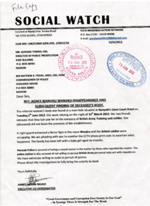
James Maina Mugo, a local member
of Social Watch, sent this letter to
the Kenyan authorities
|
Kenyan police did not pay due attention to the disappearance on March 31 of Agnes Wanjiru-Wanjiku, a 21-years old woman from a hotel in the town of Nanyuki. Her body was found on June 5 by a cleaner in a septic tank behind the hotel. Despite the pressure by relatives and civil society organizations headed by Social Watch, the authorities are responding very slowly to the growing clamor from the grassroots that accuse British soldiers and fiercely criticize military cooperation agreements between Nairobi and London.
|
Published on Fri, 2012-03-16 10:14
In terms of gender equity Kenya places itself above the Sub-Saharan African average but below some of its neighbours.
|
Published on Wed, 2012-02-01 08:18
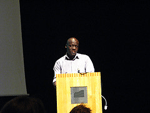
Philip Thigo. (Photo: Indigo Trust)
|
The Indigo Trust, a foundation based in London that funds technology-driven projects to bring about social change in African countries, awarded the Social Development Network (SODNET, focal point of Social Watch in Kenya) a grant of £30,750 that acknowledges its consistent work to improve the lives of ordinary citizens through its Infonet programme.
|
Published on Wed, 2011-06-15 23:55
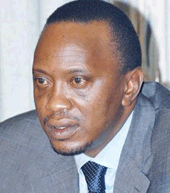
Minister for Finance Uhuru Kenyatta.
|
Sources
Sodnet: http://bit.ly/iQaDPT and http://bit.ly/kUE248
Kenyan citizens will have time until the end of this month to participate in the public discussion of the budget statement delivered to the National Assembly by the Ministry of Finance. The Constitution orders the parliamentary budget committee to process the representations of the people and to take into account their recommendations. The Social Development Network (SODNET, national focal point of Social Watch) has committed itself to play an important role delivering information to the public about the budget in an open fashion.
|
Published on Tue, 2010-08-31 09:40
Civil society organizations, including Social Watch’s focal point in Kenya, SODNET, developed a web platform to monitor the development of the country’s constitutional elections that took place on 4 August 2010. This was the second attempt to give Kenya a new constitution after the failure that provoked post election violence in 2008 killing thousands, displacing 300,000 and affecting all Kenyans.
|
Published on Thu, 2010-08-05 16:12
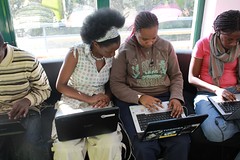 Source: SODNET Source: SODNET
SODNET, the focal point of the Kenya Social Watch coalition, is part of the civil society team that has been actively monitoring Kenya's constitutional referendum on August 4, 2010, which is a key step towards the consolidation of democracy in the country.
|
Published on Tue, 2010-06-22 11:42
June's “Spotlight on” is dedicated to Social Watch Kenya, which in August will be holding the next Social Watch regional capacity building workshop.
|
|




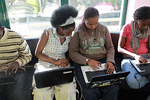





 Source:
Source: 